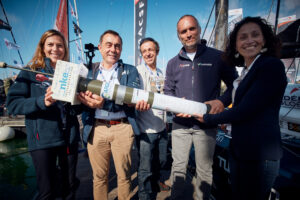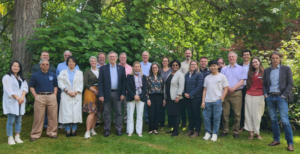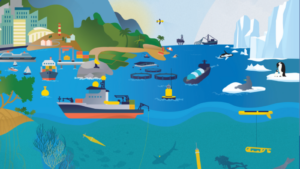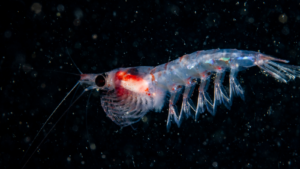Global Ocean Observing System
GOOS is the global home of ocean observing expertise and systematic coordination.
Call for Individual Consultants: GOOS BioEco Panel Science Officer
Deadline: 29 November 2024 (18:00 CEST)Location: Remote The Global Ocean Observing System (GOOS), led by the IOC and co-sponsored by the World Meteorological Organisation (WMO), UN Environment Programme (UNEP) and the International Science Council (ISC), is the global framework for ocean observing coordination. GOOS aims to deliver the essential ocean information needed for our sustainable development, […]
Read more »
COP16 Outcomes: Ocean Observing and Data for Biodiversity Conservation
At the 2024 United Nations Biodiversity Conference (COP16), the focus on ocean biodiversity reached new heights, highlighting the pivotal role of global coordination in ocean observing and data accessibility to achieve global biodiversity targets. The Convention on Biological Diversity (CBD) COP16 took place in Cali, Colombia from 21 October to 1 November 2024, and marked […]
Read more »Call for Individual Consultants: Lead for the GOOS Biogeochemistry Panel
Deadline: 27 November 2024 (18:00 CEST)Location: Remote The Global Ocean Observing System (GOOS) led by the IOC and cosponsored by the World Meteorological Organisation (WMO), UN Environment Programme (UNEP) and the International Science Council (ISC) is the global framework for ocean observing coordination. The GOOS, under the Framework for Ocean Observing and through its 2030 Strategy, […]
Read more »
Sailing for science: 25 skippers champion ocean observations in Vendée Globe 2024
On 22 and 23 October 2024, at Les Sables d’Olonne, 25 skippers participated in a groundbreaking initiative to receive training and scientific equipment to support ocean science and observations during the Vendée Globe 2024, the largest solo non-stop, round-the-world yacht race. These dedicated sailors are committed to advancing oceanographic research and weather forecasting by carrying […]
Read more »
GOOS at the United Nations Biodiversity Conference (COP16)
The Sixteenth meeting of the Conference of the Parties to the Convention on Biological Diversity (COP16) is taking place in Cali, Colombia from 21 October to 1 November 2024. It marks the first Biodiversity COP since the adoption of the Kunmig-Montreal Global Biodiversity Framework (GBF) at COP15 in 2022. During this COP16, governments will be […]
Read more »Call for co-chair of the GOOS Expert Panel on Biology and Ecosystems
Deadline: 30 October 2024 New deadline: 29 November 2024 The Global Ocean Observing System is a program of the Intergovernmental Oceanographic Commission of UNESCO (IOC-UNESCO), working to coordinate an integrated and responsive ocean observing system. The Expert Panel on Biology and Ecosystems (the BioEco Panel) provides scientific advice and expertise to GOOS on sustained ocean […]
Read more »
Report of the 15th Observations Coordination Group meeting is out
The Fifteenth Observations Coordination Group meeting (OCG-15) was a strategically important session that set the course for the global ocean observing networks and OceanOPS, with regard to working together towards an integrated, mature and fit for purpose ocean observing system that is understood as a critical global infrastructure for society, environment and the economy. The […]
Read more »
Three emerging observing networks join the Global Ocean Observing System
The Fishing Vessel Observing Network (FVON), Surface Ocean CO2 Observing Network (SOCONET) and Science Monitoring And Reliable Telecommunications (SMART) Subsea Cables are three new emerging networks aiming to grow and contribute to the Global Ocean Observing System by providing sustained and interoperable ocean data to fill known gaps. Thirteen mature global observing networks currently track […]
Read more »
August 11th: World Krill Day
Every year on August 11th since 2022 we celebrate World Krill Day: a special occasion dedicated to raising awareness about krill – small, yet mighty creatures that play a crucial role in the health of our global oceans and the ecosystem services they provide. Krill are small crustaceans similar in appearance to shrimp that belong […]
Read more »Call for Individual Consultants: GOOS Messaging Guide Development (Strategic Communications)
Deadline: 9 August 2024 (18:00 CEST)Location: Remote The Global Ocean Observing System (GOOS), led by the Intergovernmental Oceanographic Commission (IOC) of UNESCO, aims to deliver the essential ocean information needed for our sustainable development, safety, wellbeing and prosperity. The GOOS Management Team, headquartered at IOC Paris, lead and support a community of international, regional and national […]
Read more »